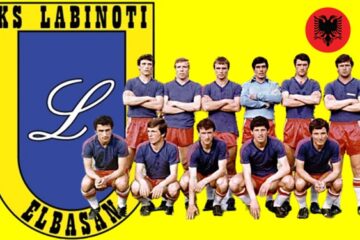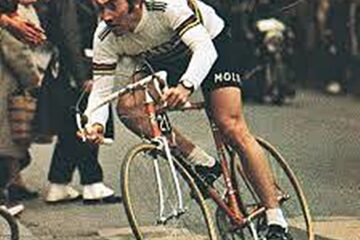The Match of the Century | England – Hungary 3-6!
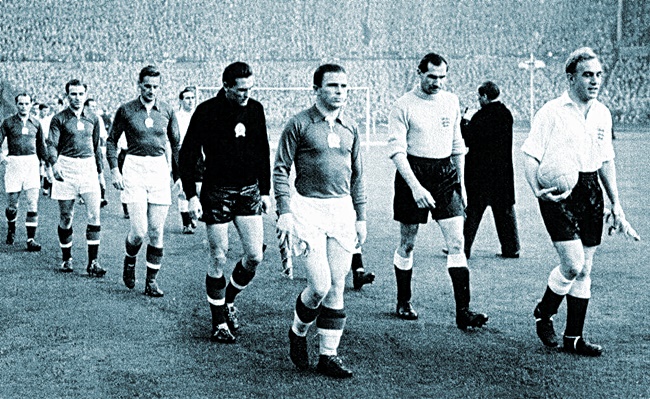
At “Wembley”, a match was played between England and Hungary, which on paper was only a friendly, but in all respects changed the history of football, and on that 25th November 1953 in the temple of the English stadium, what we today identify as modern football was born. The Hungarian talents of Kocsis, Czibor, Hidegkuti and Puskas shattered the English “masters” and changed the geography of football forever.
On that November 25th at Wembley, it was cold, the sky was leaden, as often in the English capital, and two of the best teams in the world at that time took to the field.
The English were still basking in their superiority, they were the inventors of modern football who had refused to participate in the first three World Cups organized by FIFA, certain of a superiority in the game not yet achieved by other national teams, and once a year, they “deigned” to invite a European national team to their temple to test the level to which these “continental teams” had arrived.
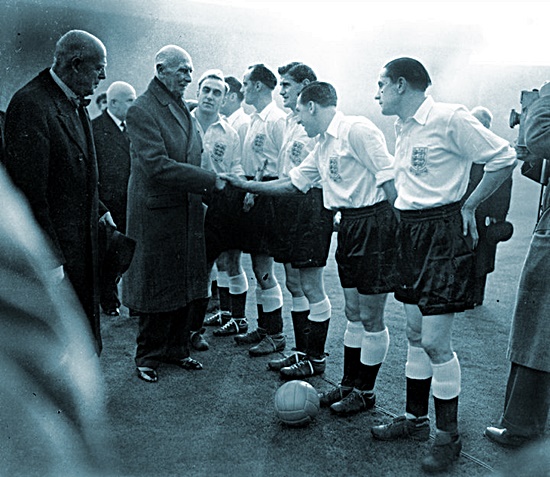
At home, never. Never until that day, when the difference was immediately clear between those who continued to feel superior and those who were actually superior, in fact.
Indeed: on the pitch; not just any pitch, but the one at Wembley, on the day when the stands seemed to want to overflow onto the pitch, with the green streaked with fog.
The Queen’s football continued to feed on a continuously self-infused awareness, a sort of act of supremacy that did not contemplate hypotheses other than its predominance given by history, by its coat of arms, by its origins. How could the English contemplate the hypothesis that Hungary, with its extremist football and technically devoted to the embroidery of the dribble could show itself as a princess who, disheveled and barefoot, managed to be more beautiful than any crowned head?
But never at home: the hold of absolute statistics seemed to dispel the wind of English anxiety, which blew from the concrete foundations of a Magyar prestige acquired and supported by non-random events, which had already changed the coordinates of football geopolitics from the cliffs of Dover downwards: the Hungarians had triumphed at the 1952 Olympics and lost, in a manner that in posthumous considerations would always be left with the shadow of a doubt, the 1954 World Cup final against Germany.
For England, the walls were a solid reassurance made of concrete and terraces, beer mugs and pennies scattered on the avenue of the pagan temple, on which the notes of the Anthem would rest. Wembley had been until that day the physical simulacrum of an inviolability, which had always cleansed the Cross of St. George from the defeats that the National team had suffered away from home over time, such as the 5-1 suffered in Scotland at the end of the twenties and the defeat against the United States in the World Cup in Brazil in 1950.
On that 25th November, a very strong team arrived at Wembley, coached by Gustavz Sebes, and which proposed a type of football that had not yet been seen. Almost all the teams, both clubs and national teams, played with a 3-2-2-3 formation, also called WM, and England also adopted that module, introduced by an Englishman, Herbert Chapman, the famous Arsenal coach.
Hungary, on the other hand, showed up at Wembley with the “sweeper” who lined up as the last man in defense, and with a formation that we could identify as a MM.
What surprised the English then was the numbering of the Hungarians’ shirts, which did not follow a classic numbering system in which the number 2 corresponded to the full-back, the number 4 was the half-back and the number 9 was on the shoulders of the center-forward, but for example, Shandor Hidegkuti with his number 9 shirt played in midfield, or as a “withdrawn center-forward”, as they said at the time, and the real strikers were Puskas, Czibor and Kocsis.
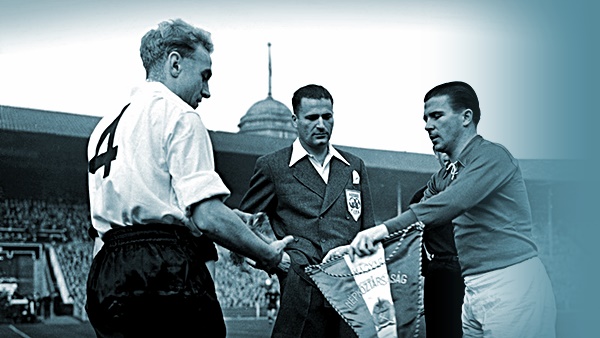
One hundred and five thousand souls and a unison of frustration, in the whisper that accompanies the Hungarian advantage at the first turn of the clock. Goal by Hidegkuti.
Episodic?
Given the minutes, it could even be, also because twelve minutes later Sewell equalizes; however, the eye of the public has already retained in its retina an evident difference, because the obsolete WM method proposed by the coach Winterbottom has immediately highlighted evident cracks produced by the Danubian symphony: gypsy studs tuned in a score that exalts the individualities of Kocsis, Czibor, Hidegkuti and Puskas, whose genius is the lubricant of the perfect mechanism.
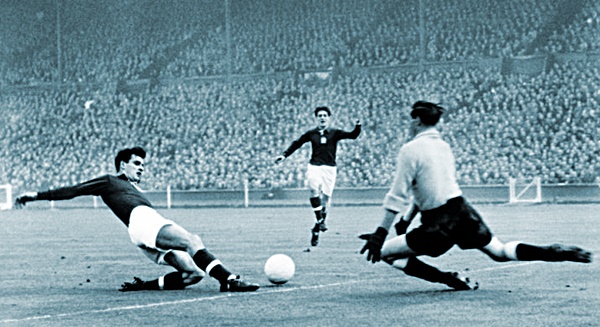
On the contrary, Sir Stanley Matthews, Alf Ramsey and other English champions do not find the choral identity that can truly and definitively allow them to interpret the match in an identity-based way. In less than ten minutes Hidegkuti scores again, then a brace from Puskas strikes down on the English; before the interval comes the English jolt with Mortensen but in the second half the third personal goal by Hidegkuti and the sixth Hungarian goal by Bozsik open the abyss of the result compared to those cracks that the technical and tactical contents of the first minutes had shown to the subjects of Elizabeth II, a girl who had recently taken the throne.
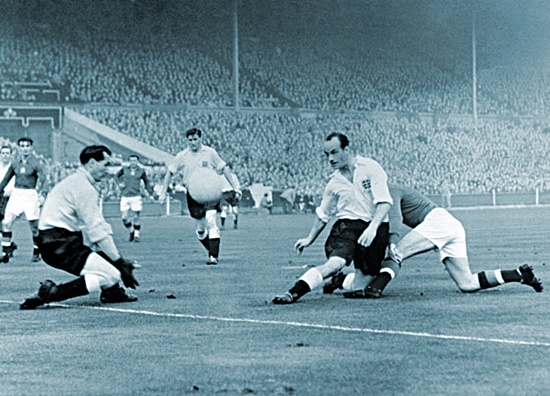

The English no longer understood anything, they risked a historic defeat, in the end the Hungarian goals were six, but they could have been double. Hungary was the first non-British European team to conquer Wembley, and that day they gave a real lesson in football to the English “masters”. A lesson that was analyzed but not accepted and fully metabolized by insiders and the English press, given that a few months later England was invited to Budapest for another friendly, and the result in favor of the Hungarians was even more sensational: 7-1!
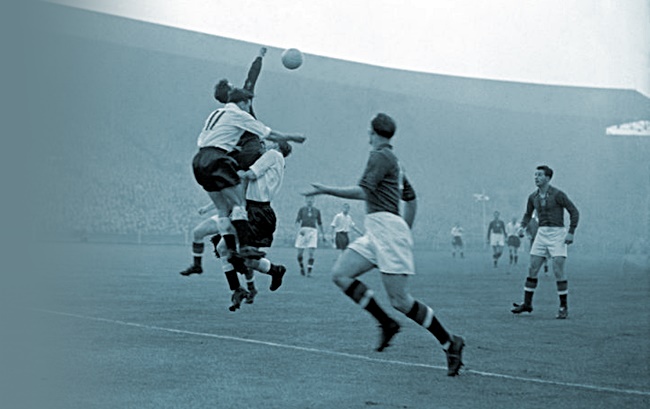
Of course, the 3-6 at Wembley remains in the collective memory, which marked an era, and in Hungary 3:6 is also the title of a 1999 film, and if you happen to be in the center of Budapest, you can also sip a beer in a pub that bears the name “3:6”.
The wonderful Hungarian team – Aranycsapat precisely – arrived at Wembley strong from the Olympics won in 1952 in Helsinki, and favorite to win the 1954 World Cup in Switzerland. And indeed, Sebes’ team did wonders at that World Cup, imposing its modern and qualitative football, but fell in the final against West Germany in Bern. The Hungarians lost in the final 3-2 after having been ahead 2-0, and against a team that in the preliminary phase they had beaten with a score of 8-3!

That great Hungary will remain in history as one of the strongest teams ever, even if it did not manage to bring home anything important apart from the Olympics in 1952.
In 1956, following the uprising in Hungary and the invasion by the Soviet Red Army, there was a diaspora of Hungarian players who at that time were engaged in a tour abroad, and who decided – for the most part – not to return home.
Hungary in the history of football will never have a team as strong again on November 25, 1953, it was only Hungary coached by Gusztáv Sebes and overflowing with talent and chorus; the Golden Team, Aranycsapat, that of football on that date definitively changes the history, before the History of books, the one with a capital H, disperses it around Europe with the echo of Soviet mortar shots.
WATCH THE FULL GAME:
Table
November 23, 1953 – London, “Wembley” Stadium
ENGLAND – HUNGARY 3-6
Scorers: 1′ Nándor Hidegkuti 0-1, 13′ Jackie Sewell 1-1, 20′ Nándor Hidegkuti 1-2, 24′ Ferenc Puskás 1-3, 27′ Ferenc Puskás 1-4, 38′ Stanley Mortensen 2-4, 50′ József Bozsik 2-5, 53′ Nándor Hidegkuti 2-6, 57′ Alf Ramsey 3-6
England: Gil Merrick (Birmingham City) – Alf Ramsey (Tottenham Hotspur), Bill Eckersley (Blackburn Rovers) – Billy Wright (Wolverhampton Wanderers) (c), Harry Johnston (Blackpool), Jimmy Dickinson (Portsmouth) – Stanley Matthews (Blackpool), Ernie Taylor (Blackpool), Stan Mortensen (Blackpool), Jackie Sewell (Sheffield Wednesday), George Robb (Tottenham Hotspur).
Coach: Walter Winterbottom
Hungary: Gyula Grosics (Honvéd), Jeno Buzánszky (Dorog), Mihály Lantos (MTK Hungária FC), József Bozsik (Honvéd), Gyula Lóránt (Honvéd), József Zakariás (MTK Hungária FC), László Budai (Honvéd), Sándor Kocsis (Honvéd), Nándor Hidegkuti (MTK Hungária FC), Ferenc Puskás (Honvéd), Zoltán Czibor (Honvéd).
Coach: Gusztáv Sebes
Referee: Leo Horn (Olanda)
New York: November 12, 2024
______________________
Sports Vision+ / Champions Hour in activity since 2013
Discover more from Sports Vision +
Subscribe to get the latest posts sent to your email.


